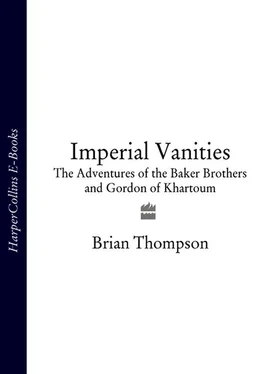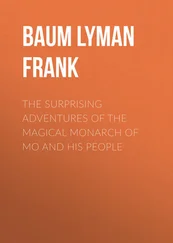After the Act of 1807 it was a crime for a Briton to buy a slave or transport one on a ship bearing the British flag. Nothing much changed locally. Beautiful though the islands might be, seen as a landfall after a wearisome Atlantic crossing, a miasma of ignorance and stupidity hung over them all. The Society for the Propagation of the Gospel had already provided the most telling example of how difficult it was to think straight in the West Indies. In slavery’s heyday it was quite usual to brand newly acquired human animals as one would cattle and the SPG asserted its ownership and high purpose at one and the same time. Its slaves were seared across the chest with a white-hot iron bearing the word SOCIETY, without causing the slightest intellectual or moral embarrassment to anyone. For many years those who defended the institution of slavery held to the opinion that its victims were happier and better looked after than the poor of Europe. This point of view was one readily adopted by visitors to the islands, who confined their acquaintanceship to house slaves, whose servitude was – at any rate on the surface – uncomplaining.
The irrepressible memoirist William Hickey made a false start on Jamaica when he was a young man. Sent out by his father in 1775 and speedily frustrated in his attempt to be admitted to the Jamaica Bar, he whiled away his time at parties and drinking sessions, making visits to plantations and reporting what he saw with an uncritical eye. On arriving at a Mr Richards’s estate he was greeted by 500 slaves in an apparent ecstasy of happiness. ‘They all looked fat and sleek, seeming as contented a set of mortals as could be,’ he commented. This was something his host ascribed to a particular style of management. ‘He was convinced by his own experience that more was to be effected by moderation and gentleness than ever was accomplished by the whip or punishments of any sort.’ Hickey was easily persuaded but agreed to go with Richards next day to a neighbouring estate nine miles distant. There they found a girl of sixteen tied to a post being whipped half to death by a young manager. She had refused his sexual advances. Mr Richards’s indignation was great. Such brutality was bad for business and it showed in the ledgers.
‘The annual produce until the last five years was five hundred hogsheads of the very best sugar and four hundred puncheons of rum [he explained to Hickey], whereas now it yields not one third of either and is every year becoming worse, the mortality among the slaves being unparalleled, and all this owing to a system of the most dreadful tyranny and severity practised by a scoundrel overseer.’
Though the two unexpected visitors intervened before the girl could be killed and the story ended with the arrest and death of her tormentor (he was shot trying to escape from his soldier escort while on his way to Kingston), it did not occur to Hickey to question, then or ever, whether slavery under any guise, benign or not, was acceptable. This sprang not from ignorance but a socially conditioned indifference. Hickey was no stranger to foreign parts. He had already sailed as a cadet in the East India Company army to Madras, found he did not like it, and came home again via Canton and Macao. Nothing he saw of other countries and peoples made a mark on him. His patriotism was of the hearty, negligent sort common to the age – he was most at his ease with his own kind, which he found in the guise of ships’ captains, bleak old soldiers and the better sort of commercial agent. As for the rest of the world, it was no more than a passingly interesting puppet show; in the end a tedious exhibition of local colour. Here, racketing round Jamaica, the ownership of one human being by another was as unremarkable and obvious as the weather. Only the most incendiary sort of crank would draw attention to it.
Very few Europeans had ever seen or could picture a free African. The ones who escaped their bondage on Jamaica and ran away into the mountains were not free, but criminal. Up there the dreaded Maroons held sway, their lives a reversion to their previous existence in Africa – simple and, when necessary, invisible. They lived in lean-to shacks deep in the forest, the sites indicated only by the smoke from their fires rising above the tree canopy and – from time to time – the eerie sound of signal drums. The white planters hired these Maroons to hunt down escaped slaves. When the most persistent of these were caught and executed, it was customary to display the severed heads on pikes set in some prominent place, to discourage crime and reassure the more nervous of the white population. It was just another part of the landscape.
There was an echo on the island of better things. Many plantations taught their more biddable house servants music and ate to the wailing of string quartets, or danced to the accompaniment of a black band got up in velvet livery, wearing powdered wigs. Several times a year the great houses would be a blaze of light, with patriotic bonfires and the discharge of fireworks to honour some royal birthday or distant feat of arms. The planters liked to celebrate and raise hell in this way for the same reason they might whistle crossing a graveyard. Death was very near. A major player in the affairs of the islands was yellow fever. In the three-year campaign that began in 1794 to capture Martinique, St Lucia and Guadeloupe, 16,000 European soldiers died of the fever and were buried in the rags of their uniforms.
Yellow Jack knew no boundaries. It was swift and remorseless. Seized with a chill, in three days a man would be blowing bloody bubbles from his mouth and nose, unable any longer to speak or sign. The fever had no friends and attacked rich and poor alike. To be posted to the Jamaica garrison was a sentence of death for many a ploughboy who had taken the king’s shilling. The hated Baptist missionaries who stirred up such agitation on the island in the name of love of their fellow man had a life expectancy of three years.
The obvious comparison was with the way the East India Company managed its trade. This was a different model of colonialism altogether. Again, William Hickey is a useful witness. Two years after his abortive trip to Jamaica he set sail for India again, this time to Calcutta and the Bengal presidency, armed with a bulging portfolio of introductory letters provided for him by his father’s distinguished London cronies. Though the administration was in temporary financial crisis, Hickey found his place. He was appointed Solicitor, Attorney and Proctor of the Supreme Court and began his new life as he meant to go on, by commissioning a £1000 refurbishment of a house he selected as appropriate to his station. He purchased a new phaeton to drive about in, laid up the best wines in his cellar, gave extravagant parties – and started to shake the pagoda-tree. Though the glorious profits of the East India Company were tainted by slavery in all but name and the company was hardly there to exercise philanthropy, this was a far nobler occupation than the Atlantic trade could ever be. Hickey scrupulously names all his influential friends, being sure to indicate, wherever appropriate, the aristocratic titles they later inherited. India pleased him. There was honour to be had there, as well as wealth. Who could say that of the Caribbean, for ever tainted by its shameful African connections?
To all of which the sugar merchants had a single answer. The value of exports from the Caribbean colonies exceeded by far those from India and all other British possessions put together. By 1815 the West Indies exercised a virtual world monopoly on sugar. As for Africa, over which the abolitionists exercised their bleeding hearts as the true home of the black man, what was it but a trackless desert, without history, unlit by civilisation, contrary and pestilential? Even on the slave coasts, nobody had been more than a few miles inland, gliding along greasy brown rivers into an overwhelming aboriginal silence. Africa was an aside, an irrelevance. People wanted sugar. How it came to the table did not much concern them. Though the storm signals were flying for the Atlantic trade at home and abroad, it took an exceptionally far-sighted man to act on them.
Читать дальше












